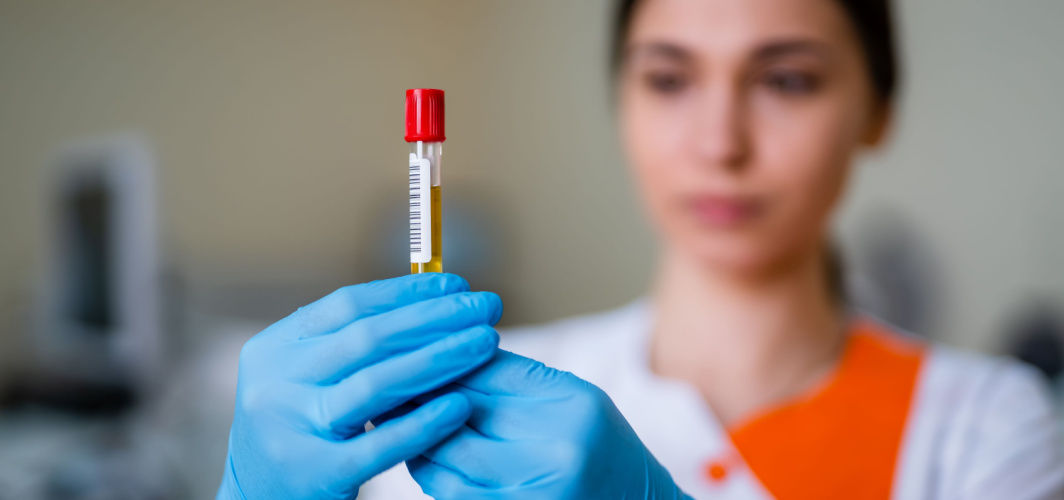General Health
MRI: What It Is, Purpose, Procedure and Results
5 min read
By Apollo 24|7, Published on - 04 August 2023, Updated on - 12 September 2023
Share this article
0
0 like
_0.jpg?tr=q-80)
Magnetic resonance imaging (MRI) is a non-invasive medical imaging technique that utilises a large magnet and strong radio waves to produce highly detailed images of organs in the body. Unlike X-rays, MRI does not involve radiation, making it a preferred choice for frequent imaging for diagnosis and monitoring treatment, particularly of the brain.
MRI machines typically consist of large, tubular magnets. As the patient lies inside the machine, the magnetic field temporarily aligns water molecules in the body. Subsequently, radio waves prompt these aligned atoms to emit faint signals, enabling the creation of cross-sectional and 3D images for examination from various angles.
Why and When is MRI Done?
MRI is a safe medical procedure used by doctors to examine organs, tissues, and the skeletal system. It provides high-resolution internal images that aid in the diagnosis of various conditions. Different types of MRIs are available based on the area of the body to be examined.
1. Brain MRI
Brain and spinal cord MRIs are particularly helpful in evaluating and diagnosing conditions like:
- Brain tumours and spinal tumours
- Brain aneurysms
- Spine and brain injuries caused by trauma
- Multiple sclerosis (MS)
- Inflammation or compression of the spinal cord and nerves
- Spinal cord conditions
- Stroke
- Spine anatomy and alignment
2. Cardiac MRI
Doctors order cardiac MRIs to evaluate:
- Cardiovascular conditions like infections, inflammation and tumours
- The function and anatomy of heart valves, heart chambers, size of blood vessels and blood flow through major vessels and surrounding structures
- The impact of coronary artery diseases like scarring within the heart muscle and restricted blood flow to the heart muscle after suffering a heart attack
- The function and anatomy of blood vessels and the heart in those suffering from congenital heart disease
3. Body MRI
Body MRIs can be ordered for the evaluation of structures and diagnosis of certain conditions, such as:
- Liver diseases, like cirrhosis, and problems with your pancreas and bile ducts
- Tumours in the abdomen, pelvis, or chest
- Inflammatory bowel diseases like ulcerative colitis and Crohn's disease
- A developing foetus in the uterus
- Inflammation of the vessels and malformations of blood vessels
4. Bone MRI
Bone and joint MRIs can be ordered to help in evaluating the following:
- Bone tumours
- Bone infections
- Joint problems due to injuries
- Disk abnormalities in the spine
Doctors also frequently order breast MRI with mammography for detecting breast cancer, particularly in women at a high risk of this disease or with dense breast tissue.
MRI Procedure
Depending on the equipment used and the type of exam, MRI typically takes somewhere between 30 and 50 minutes to complete. Here’s what getting an MRI done involves:
1. Preparation
- You can eat your usual meals and continue to take your regular medications unless advised otherwise.
- Upon arrival, you may be asked to wear a gown and remove items that could interfere with the magnetic imaging, like jewellery, eyeglasses, hairpins, underwire bras, watches, dentures, wigs, hearing aids, and cosmetics containing metal particles.
- If you have any implanted medical devices, inform your healthcare provider before the scan.
- Some implants may require special arrangements and instructions. Others may need an X-ray to verify their exact location before MRI.
- Additionally, let your provider know if you are pregnant, unable to lie on your back for 30 to 60 minutes, or experience claustrophobia (fear of enclosed spaces).
2. During MRI
- During an MRI scan, you will lie face-up on the MRI scanning bed, which slides into the machine.
- When the scan begins, the equipment will produce loud knocking and clicking noises while capturing the images.
- To protect your hearing, you'll be given headphones or earplugs. Staying still is crucial for high-quality images.
- You may feel a slight warmth in the area being imaged, but if it bothers you, then inform the radiologist.
- The technologist will be able to see and talk to you throughout the process via an intercom system. You'll also have a call button to communicate any concerns.
- If contrast material is required, you may receive an IV injection.
- If you have claustrophobia, then the provider might recommend a sedative or anaesthetic to help you relax during MRI.
3. After MRI
- If you did not receive a sedative drug during the scan, then there is no need for a recovery period. You can return home and carry on with your regular activities.
- However, if you were administered sedative drugs during the exam, then you'll need some time to recover from their effects before leaving. In such cases, it is advised to have someone else drive you home.
- Safety and caution are essential after any medical procedure involving sedation.
MRI Results
Following your MRI scan, a radiologist will carefully examine the images obtained. They will then prepare a detailed report and sign it. This report will be sent to your doctor, who will discuss the results with you and provide any necessary follow-up or further recommendations based on the findings.
To book your test scans, Click Here
FAQs
Q. How does MRI work?
MRI operates by creating a temporary magnetic field within your body using an electric current passed through coiled wires. A transmitter/receiver in the MRI machine sends and receives radio waves, and the computer processes these signals to generate digital images of the scanned area in your body.
Q. Who performs MRI?
MRI is conducted by a radiologist, who is a medical doctor specialising in performing and interpreting imaging tests for diagnosing medical conditions.
Q. Is MRI safe?
MRI scans are generally considered safe and pose minimal risk to the individual undergoing the scan when all appropriate safety guidelines are met.
Q. What are the risks of MRI?
While MRI is safe for most people, the presence of metal in the body can be hazardous due to the powerful magnets used. Furthermore, it's essential to inform your doctor if you suspect pregnancy, as the effects of magnetic fields on the foetus are not entirely understood. Additionally, inform your doctor if you are breastfeeding or have liver or kidney problems.
Q. Do braces and dental fillings affect MRI?
Braces and dental fillings do not interfere with an MRI scan, but they may cause slight distortions in certain images. Your doctor and technician will discuss this with you prior to the scan to ensure accurate results.
General Health
Consult Top Radiologists
View AllLeave Comment
Recommended for you

General Health
Sweating Way Too Much? It Could Be A Sign Of This Disease!
The article discusses the link between profuse sweating and heart diseases, outlining the possible causes and explaining when to seek medical attention. While excessive sweating can be a symptom of heart disease, it can also be caused by other factors, making it important to consult a healthcare professional for proper diagnosis and treatment.

General Health
Leukaemia: Types, Causes, Symptoms, Diagnosis, Treatment
Leukaemia is a form of blood cancer that causes abnormal cell growth in your body. Leukaemia has two types and four main classifications. The factors affecting leukaemia include your age, gender, medical history etc. It can be diagnosed through a physical exam or blood tests.

General Health
7 Ways to Reduce the Risk of Cancer
According to medical and healthcare experts, an individual’s risk of developing cancer is influenced heavily by his or her lifestyle and dietary choices.
Subscribe
Sign up for our free Health Library Daily Newsletter
Get doctor-approved health tips, news, and more.
Visual Stories

Plant-based Foods That Are a Great Source of Iron
Tap to continue exploring
Recommended for you

General Health
Sweating Way Too Much? It Could Be A Sign Of This Disease!
The article discusses the link between profuse sweating and heart diseases, outlining the possible causes and explaining when to seek medical attention. While excessive sweating can be a symptom of heart disease, it can also be caused by other factors, making it important to consult a healthcare professional for proper diagnosis and treatment.

General Health
Leukaemia: Types, Causes, Symptoms, Diagnosis, Treatment
Leukaemia is a form of blood cancer that causes abnormal cell growth in your body. Leukaemia has two types and four main classifications. The factors affecting leukaemia include your age, gender, medical history etc. It can be diagnosed through a physical exam or blood tests.

General Health
7 Ways to Reduce the Risk of Cancer
According to medical and healthcare experts, an individual’s risk of developing cancer is influenced heavily by his or her lifestyle and dietary choices.

